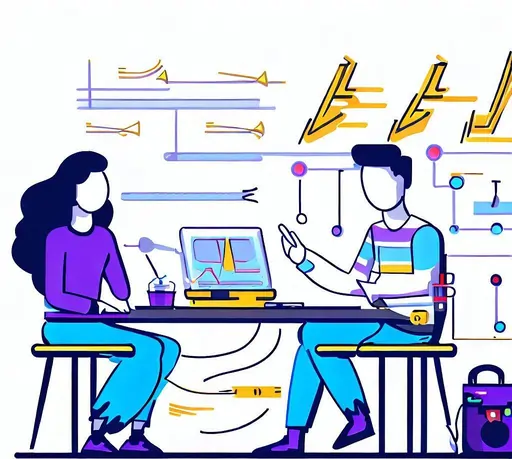
Real-world electromagnetism assignments encourage students to think critically and solve problems rather than merely regurgitate information. Students can better understand the subject's real-world applications in a variety of fields, including power generation, telecommunications, and medical imaging, by examining the complex interplay between electric and magnetic fields. Get expert assistance to successfully complete your Electromagnetism assignment, ensuring a thorough understanding of the subject and achieving remarkable results in your coursework.
- Recognizing the Basis of Electromagnetism:
- Application of Authenticity:
- Interdisciplinary Thinking Promotion:
- Encouraging critical and analytical thinking:
- Promoting Mathematical Competence:
- Addition of Contemporary Research Topics:
- Developing Effective Communication Techniques:
- Promoting Ethics-Based Thought:
Let's dive into the fascinating world of electromagnetism assignments, which demand that students understand and put into practice the fundamental ideas of this crucial area of electrical engineering. The field of electromagnetism encompasses many of the most important phenomena and ideas that have shaped modern society. The uses of electromagnetism are numerous and include everything from lighting up our homes to facilitating wireless communication. For these reasons, it's essential for electrical engineering students to understand the complexities of electromagnetism. Assignments, a crucial component of the learning process, must be created and evaluated authentically for the task to become meaningful.
Understanding the underlying concepts and their importance is the first pillar of authenticity in an electromagnetism assignment. Fundamental ideas that must be thoroughly understood include electromagnetic waves, the Lorentz Force Law, Maxwell's equations, and the interaction between electricity and magnetism. Assignments ought to be made so that students can use these ideas in actual situations. Such tasks demand a thorough comprehension of these concepts rather than merely memorization. These assignments should also encourage students to research the historical development of electromagnetic theory, its connections to other physical phenomena, and how it supports the technological advancements we see all around us.
The use of an electromagnetism assignment is the second pillar to confirm its validity. Assignments should be carefully planned to include instances where the principles of electromagnetism are used in the real world. One use of Faraday's Law of electromagnetic induction is to structure a problem around the operation of an electric generator. As an alternative, it might be about how wireless communication systems function, which rely heavily on electromagnetic waves.
Such practical applications in assignments not only deepen students' understanding of electromagnetism but also expose them to the difficulties faced by engineers in the real world. These assignments give students a chance to consider the social effects of these technologies, encourage problem-solving creativity, and develop an understanding of the profound influence of electromagnetism on human life.
Interdisciplinary connections are emphasized as the third aspect of authenticity. It intersects with a number of other fields, including computer engineering, signal processing, and even quantum mechanics. Electromagnetism is not an isolated field. These connections must be highlighted in an electromagnetism assignment to inspire students to think interdisciplinarity.
The quantum mechanical phenomena of superconductivity and quantum tunneling, for instance, which both have significant effects on our comprehension and use of electromagnetism, can be explored in assignments. Similar research questions can be used to examine how electromagnetic phenomena like electromagnetic compatibility and signal interference affect computer architectures or how signal processing algorithms can be used to interpret data collected by electromagnetic sensors.
Promoting analytical and critical thinking is the fourth aspect of authenticity. Students need to know more than just the fundamental ideas in electromagnetism because of its complexity. They must learn how to apply these principles to analyze complex situations, predict outcomes, and resolve issues. The purpose of assignments should be to test the students' capacity for critical and analytical thought.
For instance, a task might entail diagnosing an electrical circuit where hidden faults or outside interference are causing the electromagnetic principles to behave differently than they should. Alternately, the task might entail foreseeing how an electromagnetic system will behave in various scenarios. These kinds of homework assignments encourage students to gain a practical understanding of electromagnetism in addition to their theoretical knowledge.
The fifth trait emphasizes mathematical aptitude. Understanding the fundamentals of electromagnetism requires a strong background in mathematics, especially calculus and vector algebra. Mathematical modeling and problem-solving that reflect the quantitative nature of electromagnetism should be a part of authentic assignments.
These tasks can include calculating the electromagnetic fields produced by intricate configurations of charges and currents, solving Maxwell's equations under various boundary conditions, or analyzing the motion of charged particles in magnetic fields. These tasks help students strengthen their mathematical foundations, improve their problem-solving abilities, and equip them with the skills they need to deal with the quantitative aspects of electromagnetism.
The inclusion of current research topics is the sixth sign that an assignment is genuine in terms of electromagnetism. Electromagnetism is a dynamic field where new advancements and discoveries are made on a regular basis. Thus, assignments should be dynamic and encourage students to learn about and comprehend the most recent research.
For instance, assignments might entail reading and evaluating current electromagnetism-related scientific articles. Alternately, the task might entail investigating a modern use of electromagnetism, like quantum computing, wireless power transfer, or metamaterials. These kinds of assignments keep students up to date on the most recent advances in the field and motivate them to participate in the ongoing scientific conversation.
The development of strong communication abilities is the seventh characteristic of an authentic assignment. In addition to being problem solvers, engineers are also good communicators. They must communicate their concepts, plans, and conclusions to a wide range of people, from other engineers to non-engineers.
Therefore, it is important to create assignments that encourage these communication skills. For instance, a task might call for students to explain to a non-technical audience how they solved a challenging electromagnetic problem. A technical report or research proposal on an electromagnetism topic could also be part of the assignment. These assignments give students the chance to translate intricate technical information into understandable language, a skill that every engineer needs to have.
Encouragement of ethical consideration is the eighth and final characteristic of an authentic electromagnetism assignment. Numerous ethical issues arise as a result of electromagnetism's pervasive influence on many facets of human life. The uses of electromagnetism are fraught with moral dilemmas, from the dangers of electromagnetic radiation to the energy use of electrical appliances.
As a result, these issues should be covered in assignments. It is possible to ask students to consider the societal ramifications of a specific electromagnetic technology, the trade-offs associated with its use, or the solutions available to lessen its adverse effects. These assignments foster an all-encompassing understanding of electromagnetism as well as a sense of obligation to people and the environment.
In conclusion, careful consideration of these eight qualities is required when creating authentic electromagnetism assignments. It's important to develop a thorough understanding of the subject, promote critical thinking, promote effective communication, and instill a sense of ethical responsibility in addition to problem-solving skills. Students will learn the fundamentals of electromagnetism through such assignments, but they will also develop into capable, moral, and accountable engineers.
Conclusion:
For students to develop a thorough understanding of this complex subject, it is crucial to create meaningful assessments for their electromagnetism assignments. Educators can design assessments that bridge the gap between theory and practice by incorporating the eight critical qualities covered in this blog. In addition to evaluating students' knowledge, authentic assessments that are in line with learning objectives also encourage students' critical thinking and problem-solving abilities.
Students gain a comprehensive understanding of the subject through authentic electromagnetism assignments, enabling them to use their knowledge in practical situations. Students gain the skills they need to succeed in their future careers as electrical engineers by tackling difficult problems that mimic professional settings.
Additionally, authentic assessments encourage a learner-centered methodology that emphasizes independent inquiry and active participation. Teachers can encourage a deeper sense of curiosity and passion for the subject by giving students opportunities to investigate electromagnetism through practical experiments, computer simulations, and project-based tasks.
The eight essential characteristics of authentic electromagnetism assignments described in this blog post offer a thorough framework for creating tests that accurately gauge students' comprehension and problem-solving abilities. By encouraging these traits in their students, teachers can help them develop into competent, self-assured electrical engineers who are prepared to take on the challenges of the electromagnetism field.
